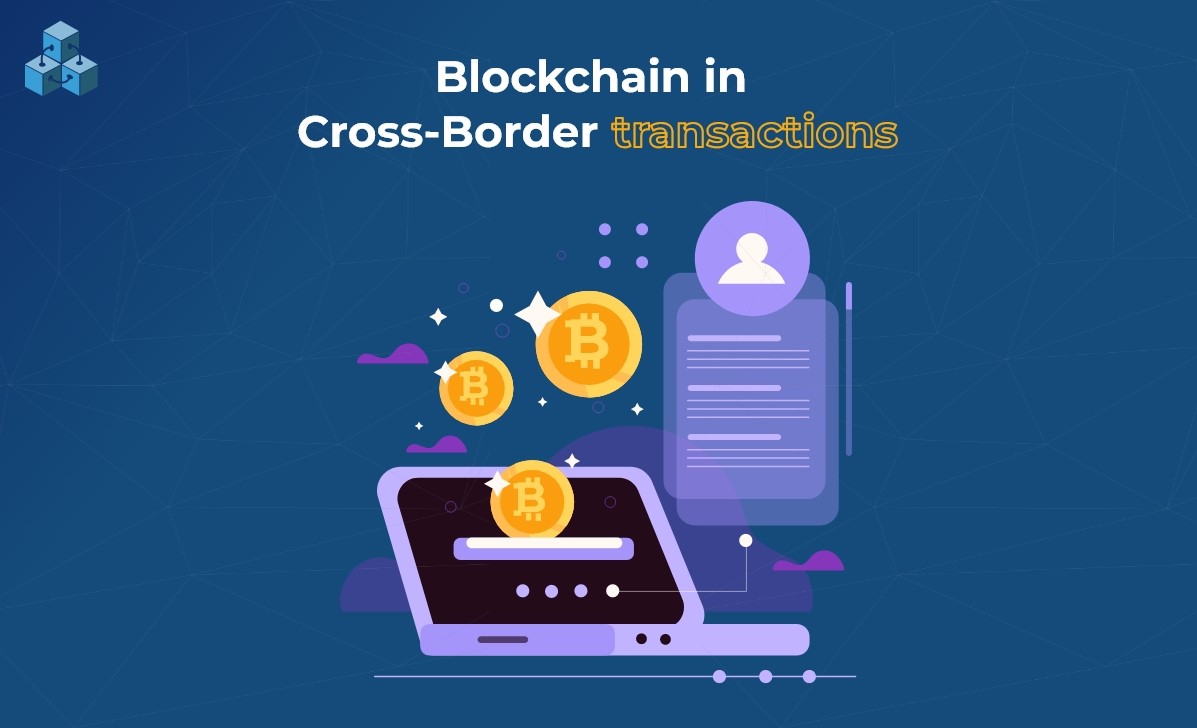Blockchain technology is the backbone of digital currency and is evolving as a disruptive power to change the traditional financial service industry. Blockchain is a decentralized and transparent distributed ledger system. These features can help improve efficiency, reduce costs and enhance security.
Blockchain In Cross-Border Payments
Traditional cross-border transactions face challenges, such as high cost, long processing time and lack of transparency, making it complex for businesses and individuals operating in the global economy. However, with blockchain technology in play, a transformative game changer is taking place in cross-border transactions offering solutions that enhance efficiency, transparency, and security. In this blog, we will explore how blockchain is transforming cross-border transactions, its benefits, its impact on various industries, and the potential it holds for the future of cross-border payments.
Benefits Of Blockchain In Financial Services
Blockchain Technology holds the potential to transform the old traditional ways of Financial Services. This technology offers enhanced efficiency, transparency and low-cost solutions to users. Some of Blockchain’s benefits in cross-border transactions are listed below:
- Speed and Efficiency:- Blockchain eliminates the need for third-party, increasing the pace of the cross-border payment process. The traditional payment system includes multiple correspondent banks, resulting in delays and high transaction fees. Blockchain allows transactions directly between parties, which reduces the time taken for settlement and eliminates unnecessary transaction fees. On the other hand, smart contracts on the blockchain can help automate payment instructions and ensure fast and accurate execution and enhance the overall speed and efficiency of cross-border transactions.
- Low Cost:- Blockchain technology significantly lowers the cost associated with cross-border transactions. The traditional systems involve high fees for every process, such as currency conversion, transaction processing and intermediaries. But blockchain-based platforms can enable direct peer-to-peer transactions removing the need for intermediaries and reducing the fee associated with them. The transparency feature of blockchain allows better visibility in transaction fees and exchange rates and empowers users to make decisions and select cost-effective solutions.
- Transparency and Traceability:- Blockchain offers transparency and immutability, which provides a complete audit track for cross-border transactions. Every transaction is available on the blockchain platform, is verifiable, inalterable and offers high transparency. Transparency is crucial in cross-border transactions as the user can track the movement of funds, ensuring compliance with the regulations is necessary. Blockchain platform solutions enable real-time tracking systems, monitoring of transactions, enhancing transparency and reducing the risk of fraud, hacks and money laundering.
- Enhancing Security:- Security in cross-border transactions is an essential concern. Blockchain technology uses advanced cryptographic algorithms to secure transactions and personal data. Blockchain’s decentralized nature eliminates the third-party system seen in traditional methods, making it difficult for cyberpunks to hack, manipulate or compromise the transaction records. The consensus mechanism in blockchain technology ensures the verification of transactions by a network of parties and thus further enhancing the security of the platform and reducing the risk of fraudulent activities.
- Financial Inclusion:- Blockchain’s potential brings financial services by providing access to cross-border transactions for individuals and businesses to the ones underserved by the traditional banking systems. By leveraging blockchain-based solutions, individuals can facilitate peer-to-peer transactions without any traditional bank account. It enables individuals in remote areas or developing countries to participate in global cross-border transactions. It can help drive economic growth and empower individuals to bridge the gap between financially excluded populations and the global economy.
- Simple Compliance and Regulatory Processes:- Cross-border transactions involve complex compliance and regulatory processes. Blockchain technology offers opportunities to simplify compliance and regulatory processes by providing a transparent and auditable record of transactions. Smart contracts automatically execute regulatory requirements, Know Your Customer and Anti-Money Laundering regulations.
- Decentralized System:- Blockchain removes the need for any intermediate, such as banks, for cross-border payments. The decentralization feature of blockchain not only reduces the cost but eliminates the complexity and inefficiencies related to multiple intermediates. Blockchain enables direct P2P transactions between users, removing the need for traditional financial institutions.
- Seamless Integration with Other Financial Services:- Blockchain allows seamless integration with other financial services. The entire process helps reduce paperwork, enhance transparency and accelerate the movement of goods and services across borders.
Conclusion
Blockchain is changing cross-border transactions by offering speed, efficiency, transparency, security and cost-effective solutions. It eliminates the need for intermediates resulting in fee reduction and streamlined processes. As Blockchain grows, we can expect further development in cross-border transactions.
Blockcoders is a Blockchain Development Company. We offer custom blockchain solutions to various industries empowering them to unlock the potential of Blockchain technology. Contact us today to embark on this Blockchain journey!
 info@blockcoders.pro
info@blockcoders.pro
 Our global presence :
Our global presence :
 |
|
 |
|
 |
|


